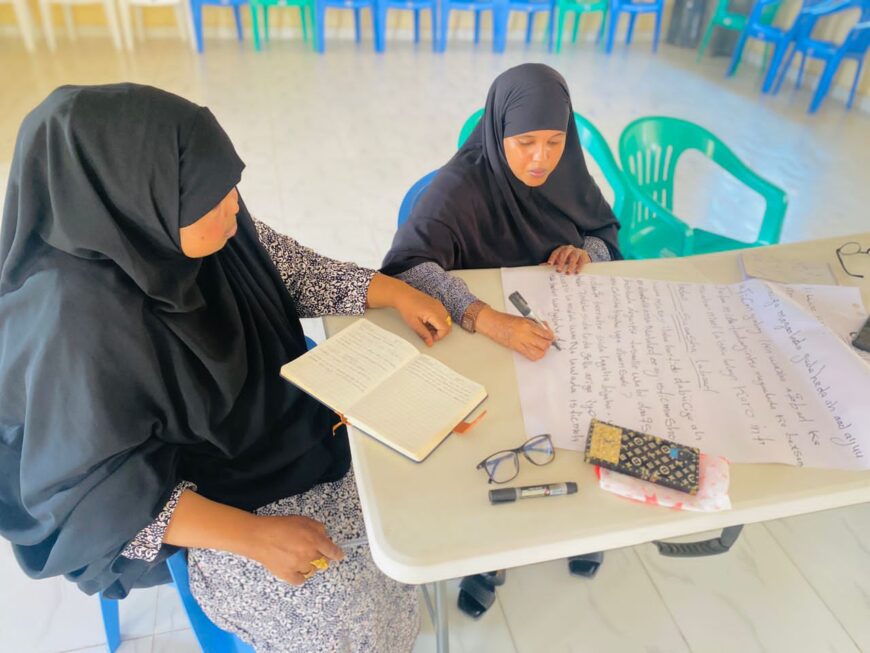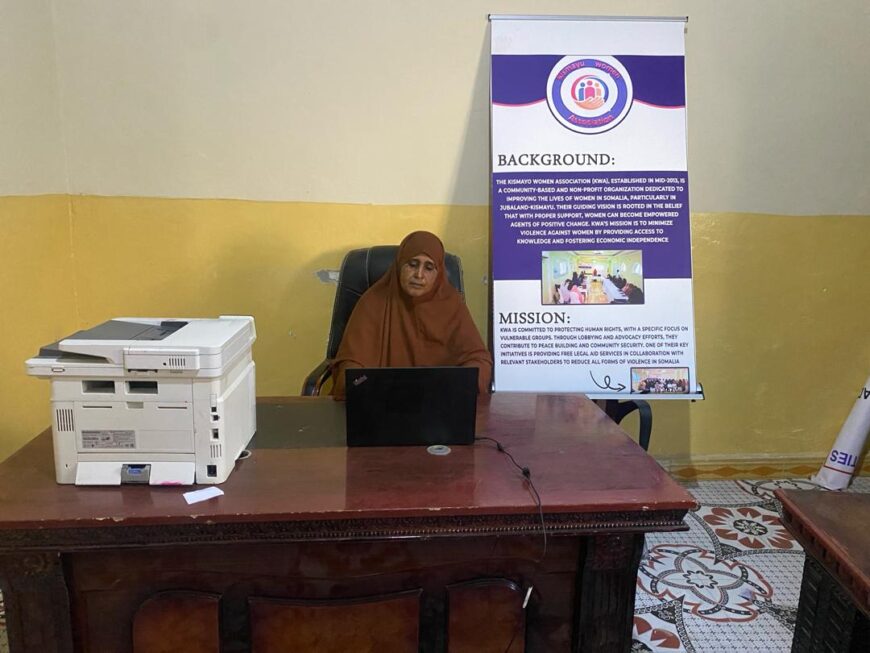Since the early 1990s, Somalia has endured high levels of political unrest and violence. The main conflict drivers are complex and interrelated, combining factors of drought, displacement, resource scarcity, political instability, inter-clan tensions and external interventions. Politico-religious radicalism has also erupted in certain segments of the population – particularly the disenfranchised youth -leveraging the limited reach of central government presence in certain areas,
as well as the substantial amount of discontent arising from the aforementioned factors. Despite government authorities regaining control of some limited areas, including major cities such as Baidoa and Kismayo, the situation remains critical. Indeed, many territories are still under the control of the rebel group, Al-Shabaab, especially rural areas.

Contributing to this situation is also Somalia’s societal structure, which is based on a male-dominated clan system and lacks a systematic approach to promote inclusivity. This structure mostly excludes Somali women from key political processes at the community, regional, and national levels, including peacebuilding initiatives.[1] But women’s participation in socio-political activities and their involvement in the decision-making process have been shown to have beneficial effects on societal development and peace.
Encouraging local peacebuilding and conflict prevention initiatives
Civil society organizations (CSOs) in Somalia, especially women-led CSOs face significant challenges, particularly with regard to the lack of resources to develop skills and gaps in capacity. These challenges hinder their ability to effectively address social issues, advocate for change, and contribute to sustainable peacebuilding efforts.
With the generous support from United Nations Peacebuilding Fund (UNPBF), Acted, in partnership with two local NGOs – SADO (Social-life & Agricultural Development Organization) and Taakulo Somali Community, has been implementing the project “Nabad: promoting women-led grassroots peacebuilding toward social reconciliation”. The project aims to address the above-mentioned challenges and foster a more sustainable environment for locally driven peacebuilding efforts. Specifically, Nabad seeks to enable women-led Civil Society Organizations (WLCSOs) across eight targeted districts, evenly distributed between Southwest State (Baidoa, Berdale, Hudur and Barawe) and Jubaland (Kismayo, Dhobley, Baardhere, Dollow), to lead self-designed local peacebuilding and conflict prevention initiatives. As part of this initiative, Acted and its partners have integrated a capacity building component into this project, bolstering the organizational and financial management skills of the eight targeted WLCSOs.
Through the capacity-building programs provided by Acted and its partners, our organizational structures and systems have significantly improved.

Ruqia Jama*, a 50-year-old woman, serves as the executive director of Kismayo Women Association, a women-led CSO dedicated to advocating for women’s empowerment. For the past four years, Ruqia has led the organization through numerous challenges, including limited access to resources – both in terms of funding and training – due to systemic gender biases; security threats that hinder mobility and outreach efforts, and social norms that restrict women’s participation in leadership roles, thereby exacerbating organizational capacity constraints. However, Ruqia and her team never lost hope, demonstrating determination to continue empowering women, promoting gender equality, and creating positive change in Kismayo and beyond, despite the challenges they faced.
Kismayo Women Association, Ruqia’s organization, is one of eight women-led CSOs which Acted has been supporting through its two-year peacebuilding project, funded by UNBPF in Somalia.
As part of its activities, Acted, together with local partners SADO and Taakulo, has provided capacity building training to the WLCSOs, based on Acted’s GOCA flagship
program, to enhance organizational management and promote sustainability. The capacity building activities, conducted through in person sessions, covered the following topics:
- Good Governance and administration
- Organizational management
- Financial management
- Project cycle management
- External relations and resource mobilizations
After having benefited from this training program, Ruqia and her team successfully strengthened their organization’s operational efficiency by improving their management capacities and external relations skills. The GOCA flagship program is one of Acted’s tools to support local actors’ development, such as NGOs, enabling them to have all the necessary resources to ensure a long-lasting impact. In fact, as stated by Ruqia and her team, enhancing basic skills, such as financial management and donor engagement has equipped them to be more autonomous and lead their own local actions, ensuring a constant involvement in local societal issues and working towards a more stable future.
Our partnership with Acted has been truly transformative, opening doors to new opportunities for collaboration, knowledge sharing, and joint advocacy efforts with various organizations.
In male-dominated societies like Somalia, projects like “Nabad: promoting women-led grassroots peacebuilding toward social reconciliation” have a dual effect that can have a significant impact on traditional perceptions of societal norms and structures. By underscoring the importance of women’s inclusion in social cohesion and development while advocating for gender equality, Acted and it’s local civil society partners are contributing towards more sustainable and long term peace to promote social reconciliation and cohesion.
[1] UN Women, Somalia, https://africa.unwomen.org/en/where-we-are/eastern-and-southern-africa/somalia
*Names have been changed to protect the identity of the beneficiary.
